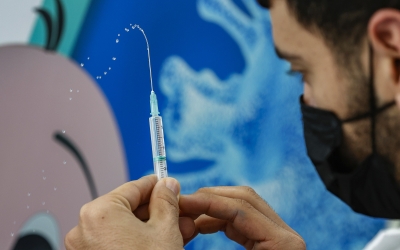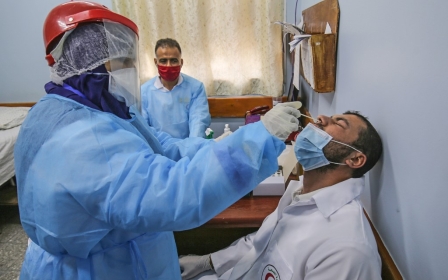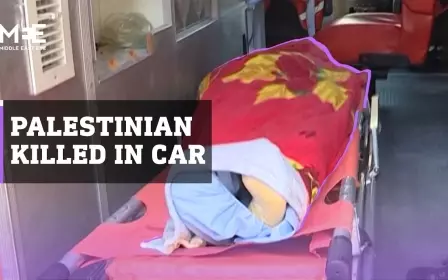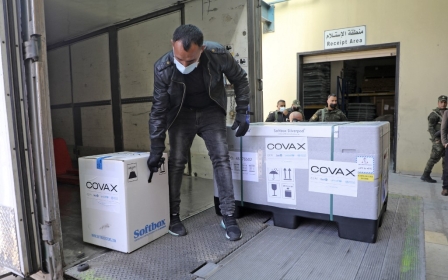Israel 'flagrantly violated' obligations to vaccinate Palestinians, Amnesty says
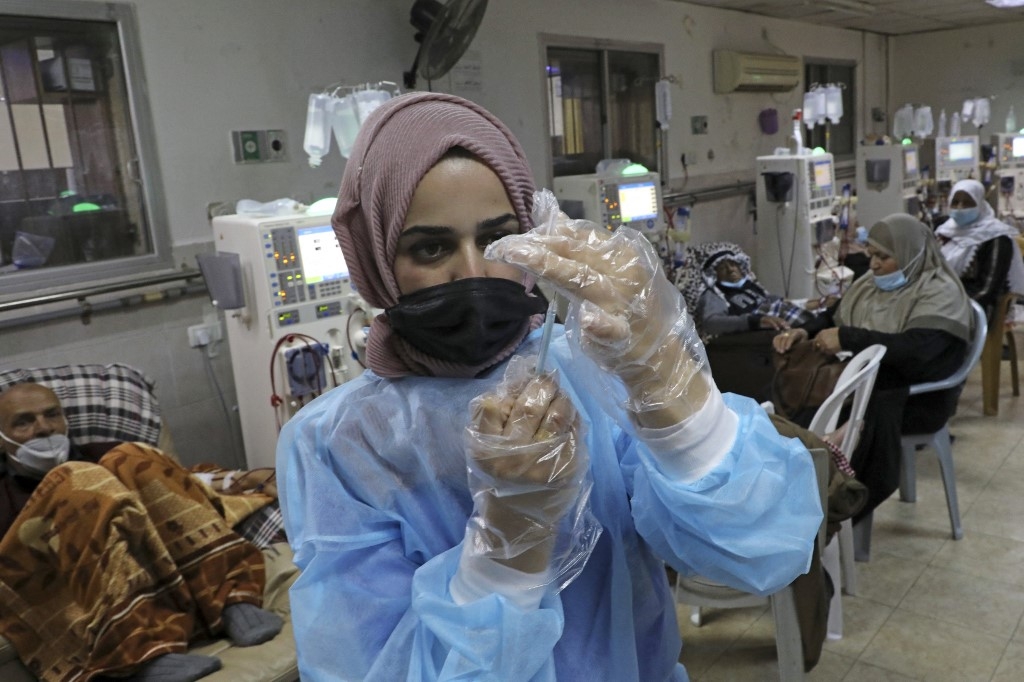
Amnesty International has accused Israel of "flagrantly" violating its obligations as an occupying power by failing to provide Covid-19 vaccines to five million Palestinians living in the occupied West Bank and Gaza Strip, calling it a sign of "institutionalised discrimination".
The human rights organisation's annual global report, published on Wednesday, said the coronavirus pandemic had exposed policies that have "perpetuated inequality, discrimination and oppression and paved the way for the devastation wrought by Covid-19 globally and within the Middle East and North Africa", including in Israel and the Palestinian Territories.
"In a clear illustration of the extent of institutionalized discrimination in Israel and the Occupied Palestinian Territories, Israeli authorities failed to provide vaccinations to five million Palestinians in the occupied West Bank and Gaza when the vaccination drive began in December 2020," the report said.
"This move flagrantly violated Israel's obligations as an occupying power under international law."
Israel, which launched its vaccination campaign in December, has surged ahead as the world's leading country for vaccinating its citizens, administering at least one dose of the Covid-19 vaccine to around 60 percent of its population.
But for Palestinians living in the occupied West Bank and Gaza Strip, the vaccine rollout has lagged far behind.
According to a recent report by the aid agency Doctors Without Borders, "You are over 60 times more likely to have a vaccination in Israel than in Palestine."
The latest World Health Organisation (WHO) data shows that there are more than 282,000 confirmed coronavirus cases with more than 2,970 deaths among Palestinians in the West Bank, Gaza and East Jerusalem.
Last month, the Palestinian Authority (PA) received its first batch of vaccines from the World Health Organisation's sharing initiative, Covax, adding 62,000 doses to the occupied West Bank's inoculation programme. It has also received a batch of Russia's Sputnik V vaccine.
Under the fourth Geneva convention, Israel is obligated to maintain "the medical and hospital establishments and services, public health and hygiene in the occupied territory", including the adoption of measures to stop the spread of contagious diseases.
Covid-19 has 'deepened inequality'
In its new report, Amnesty also outlined other forms of "institutionalized discrimination" against Palestinians in either Israel or the occupied territories, including the forced displacement of hundreds, unlawful killings, and the "illegal blockade" on Gaza.
The rights group said Israel was continuing to carry out systematic violations of human rights, including crimes under international law against Palestinians.
"Israeli authorities conducted hundreds of raids throughout the West Bank to arrest Palestinians, usually at their homes at night," Amnesty said.
"Those arrested were detained in prisons in Israel, along with thousands of other Palestinians from the [Occupied Palestinian Territories] arrested in previous years," it said, adding that these transfers to Israeli prisons violated international law.
Outside of Israel and the Palestinian Territories, Amnesty highlighted other ways in which the coronavirus pandemic had further exposed inequalities in the MENA region, including the situation of migrant workers in many Gulf countries, as well as how leaders in the region have used the pandemic to continue attacks on human rights.
"COVID-19 has brutally exposed and deepened inequality both within and between countries and highlighted the staggering disregard our leaders have for our shared humanity. Decades of divisive policies, misguided austerity measures, and choices by leaders not to invest in crumbling public infrastructure, have left too many easy prey to this virus," Agnes Callamard, Amnesty International’s new secretary general, said in a statement.
"We face a world in disarray. At this point in the pandemic, even the most deluded leaders would struggle to deny that our social, economic and political systems are broken."
Middle East Eye delivers independent and unrivalled coverage and analysis of the Middle East, North Africa and beyond. To learn more about republishing this content and the associated fees, please fill out this form. More about MEE can be found here.


